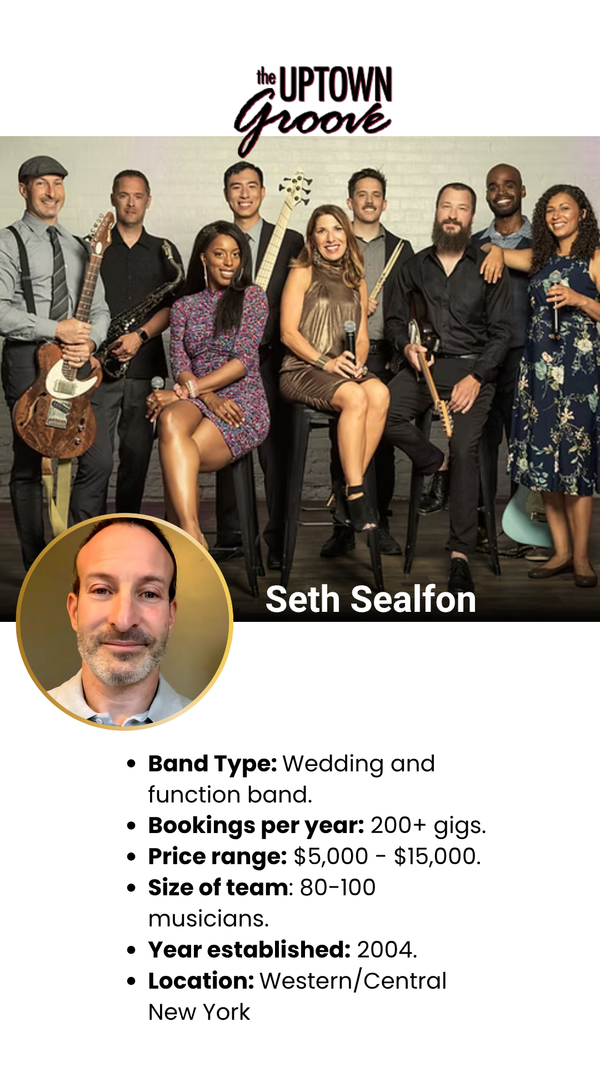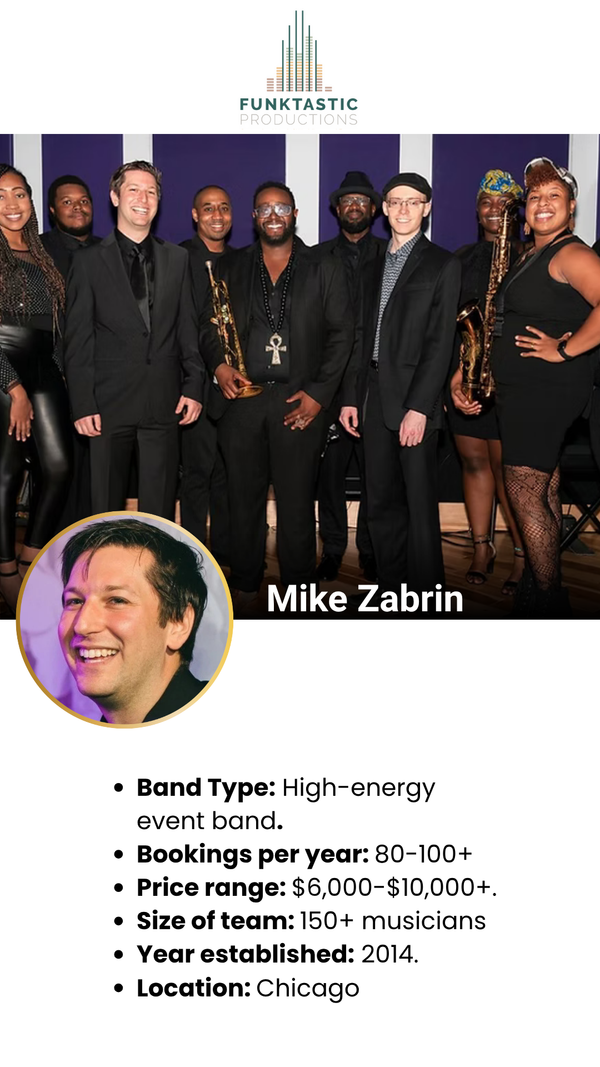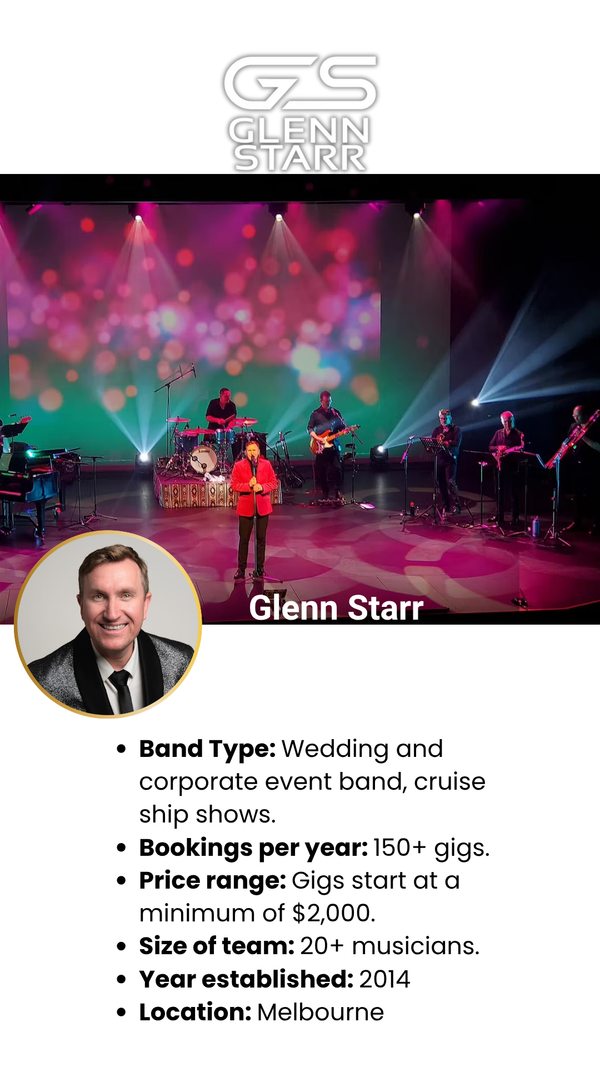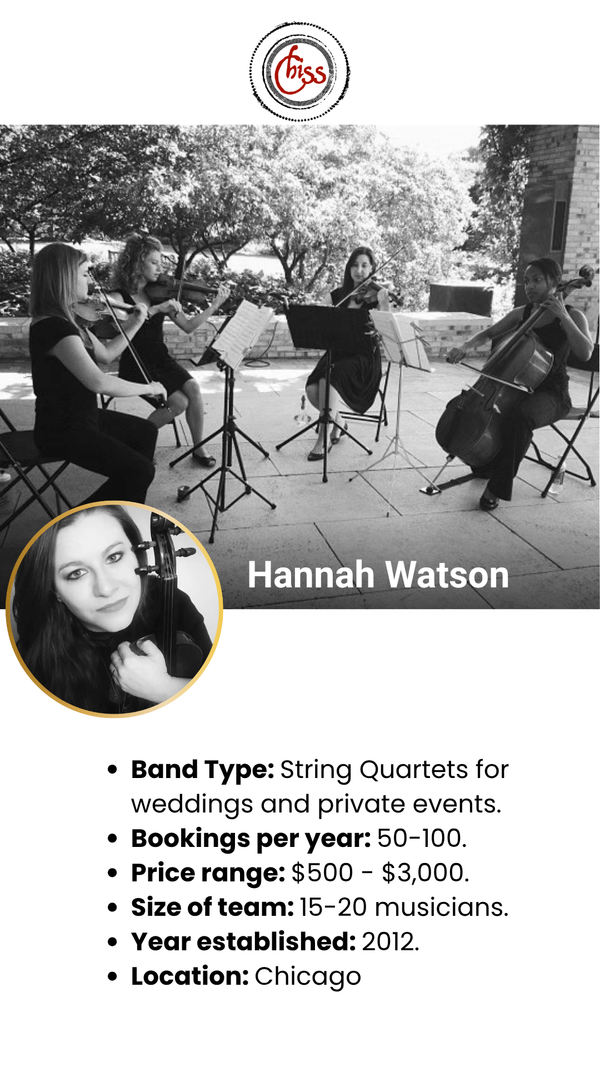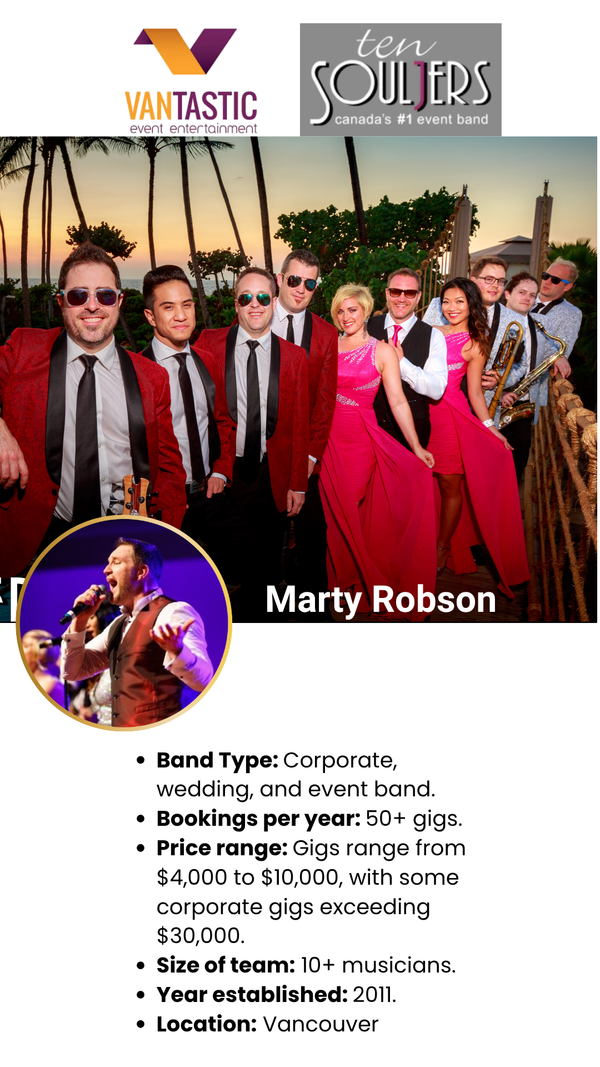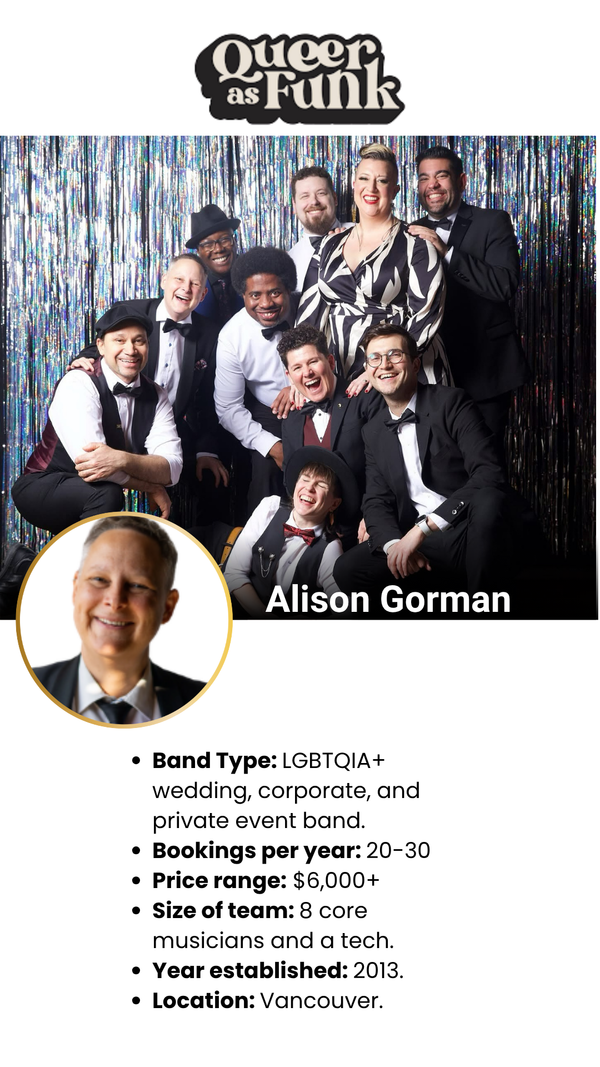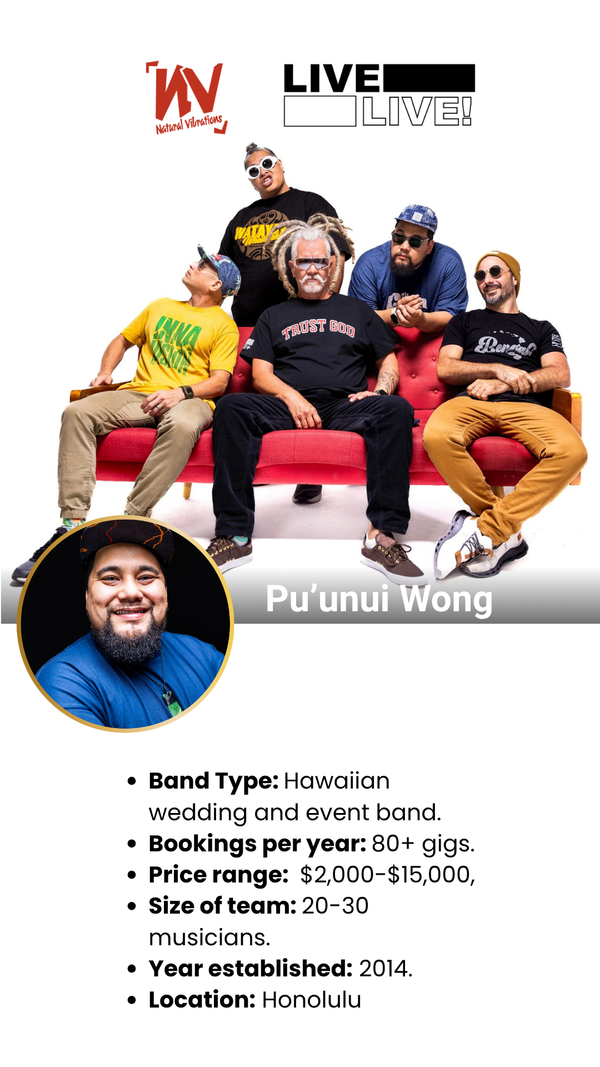Using Generic Software for Your Live Music Business is a Waste of Time and Money
If you’ve been in the music industry for more than a day, you probably have a horror story. It usually centers around not getting paid or someone not showing up. Sound familiar?

As a music bandleader, you know that time is money. The more time you spend on administrative tasks, the less time you have to focus on your passion: creating and performing music. While generic software might seem like a convenient solution for managing your live music business, it can end up costing you more.
Keep reading if you want to find out why using generic software wastes time and money. Additionally, we will provide insights on how you can optimize your operations using specialized software designed specifically for the live music industry.
The Live Music Industry and Its Unique Challenges
When you manage a live band, there are dozens of things to worry about. Some of those administrative tasks are:
- Managing personnel schedules
- Communicating with the band and clients
- Tracking inventory of musical equipment
- Handling client contracts, invoices, and payments,
- Booking gigs
- Playlists and repertoire management
- Paying your band
Band management is a 3-ring circus, and you’re the ringmaster. Unless you have a full-time assistant, everything falls on your shoulders. To get organized and automated, you’ll need the right software.
Let’s compare generic and specialized band management software to discover which solution best suits your needs.
Generic Business vs. Specialized Band Management Software
Here are the differences between generic business software and specialized band management software.
|
Generic Business Software |
Specialized Band Management Software |
|
Designed to meet the needs of various business types. |
Tailored specifically to meet the needs of live music bands. |
|
Offers a wide range of features that may not be necessary for a music business. |
Has band-specific features such as gig scheduling, ticket sale tracking, and contract management. |
|
Does not integrate with music apps, such as music streaming and collaboration tools for musicians. |
Integrates with music streaming services and social media platforms, which is essential for bands to reach their audience. |
|
Initially, it may be less expensive, but you may need to purchase additional apps to gain the necessary functionality. |
Specialized software offers better value. It’s an all-in-one solution and scalable. |
|
It may require additional customization to meet the specific needs of a music business. |
Customized for the specific needs of the music business from the outset. |
Some benefits of band management software include having access to features exclusively designed for the music industry, such as gig scheduling, royalty tracking, and fan management. Additionally, you can customize it to fit your band’s needs.
For a detailed comparison, visit our blog, “The Top 5 Band Management Software Options.”
7 Ways A Purpose-Built Solution Simplifies A Live Music Business
From managing the logistics of a live performance to ensuring that the audience has an unforgettable experience, there’s a lot to keep track of. That’s where purpose-built solutions come in. When you shop for a software solution, look for the following seven features to make your life easier and more profitable.
1. Streamlines the Communication Process

Band management software lets you communicate directly with musicians, clients, and team members. The app lets you share important information, such as schedules and setlists, with the band so everyone is on the same page. It lets you talk directly with clients about contracts and financing for better transparency. Timely communication reduces costly errors.
Your band members can access all the gig details anytime without distracting back-and-forth chats and emails.
2. Simplify The Process of Booking and Managing Band Members

One of the biggest benefits of a quality band management app is it reduces the time to book musicians for gigs. The app should let you create custom call lists to send gig offers to the appropriate musicians in just a few clicks.
Do you know how it can take forever to hear back from musicians when you’re trying to book them for a gig? With an automated system, it’s much faster because the musicians already have all the engagement details. Plus, they keep getting automatic reminders until they let you know whether they can make it. You don’t have to stop what you’re doing to round everyone up.
3. Automatic Payouts Build Trust

There is nothing worse than playing a long gig and not getting paid. It’s worse when the band members look to you to hand them their money. If you want to attract the best musicians, you must pay them on time!
Using an app that integrates an auto-pay feature means no more checks. You pay everyone in the band accurately with one click.
Each payout automatically generates an invoice on the musician’s behalf, so you don’t have to chase them for one. The system acts like a bookkeeper, recording each payout inside the booking it belongs to. You’ll always know who did or didn’t get paid.
Band management software, such as Back On Stage (BOS), can automate the payment process by allowing electronic payments and charging individual transaction fees. Enabling the “Tip” option on client invoices recoups the transaction fees. Additionally, the software can integrate with payment platforms such as PayPal to simplify the payment process.
By automating these payment processes, band management software builds confidence between the musicians and the band leader.
4. Generate Contracts to Protect You and Your Band

When it comes to contracts, film producer Samuel Goldwyn said it best. “A verbal contract isn’t worth the paper it’s written on.” If a venue owner has ever screwed you, you know that’s a true statement.
Be sure the music management app you buy has a rock-solid contract generator with e-signature capability. It outlines the terms and conditions, such as payment, deposits, compensation terms, technical requirements, the scope of performance, date, and time.
Having a professional contract shows everyone you are serious about your business. A contract protects both parties from disputes and disagreements. You can customize, sign and send contracts as fast as an email. Clients can use a portal to sign the contract and seal the deal quickly. No more expensive couriers or “it’s in the mail” excuses.
5. Create Invoices Instantly

Band management software can generate invoices automatically by pulling data from the booking details and client information. The software typically includes an invoice generator tool that allows users to input the necessary details, such as the date of the gig, services provided, and the total amount due. It should integrate with commercial payment methods like PayPal and credit cards. The software can then calculate the tax, discounts, and other charges. It generates a professional-looking invoice you can send directly to the client.
Make sure the app you buy lets you customize the invoice with your band’s logo for a professional image.
6. Build and Manage Set Lists

Another challenging task of band management is creating setlists for their gigs, rehearsals, and performances. Old school band leaders needed a sheet music file for each band member. Thankfully, the digital age has simplified music management.
Today’s apps let you download PDFs, MP3s, or other audio formats. Building a set list is fast, and rearranging titles is easy as drag and drop. The greatest advantage is the ability to share the list with your bandmates on the fly. The software can also help organize songs, handle MIDI program changes for multiple instruments, and manage backing tracks.
7. Generate and Convert Leads

Have you ever lost a lead or a gig because you couldn’t find the person’s information? If you have a Customer Relationship Management (CRM) tool built into your music business management platform, client information won’t drop through the cracks anymore.
Band management software, such as Back On Stage, can assist you in managing and converting leads into bookings by streamlining the backend of your music business. The software can automate follow-up emails, allowing personalized messaging and quick response times. It can also manage schedules, contacts, and contracts. Additionally, the platform offers customizable lead forms and templates for personalized messages.
The Long-Term Benefits of Live Music Industry Software
When choosing an app to help you manage your live music business, look for software with a proven track record of success. Additionally, read reviews from other users and test the software before making a final decision.
The inefficiencies of generic software can cost you jobs, credibility, and band members. Specialized music software, like Back On Stage, is explicitly designed for the live music industry. It has been proven to help you to organize and simplify your music business and reduce errors. Using specialized software saves time, reduces costs, and increases your revenue. Take control of your band’s success with Back On Stage!






